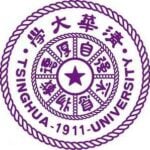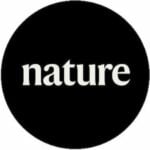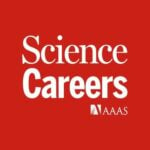Job Description
Employer: Tsinghua University (website)
The Department of Astronomy (DoA) at Tsinghua University in China and SRON Netherlands Institute for Space Research (Utrecht) in the Netherlands jointly invite applications for a Postdoctoral Scholar position in the development of transition-edge sensor (TES) technology for X-ray astronomy.
Tsinghua University is one of the oldest and most prestigious universities in China and is also one of the best in the world. Besides its diverse areas of astrophysics research, DoA is also highly committed to instrumentation for astronomical applications. It is leading an effort to advance the Hot Universe Baryon Surveyor (HUBS) mission concept, designed to address a number of issues that are critical to the understanding of galaxy formation and evolution, and is developing TES-based microcalorimeters for HUBS, in close collaboration with SRON. SRON has a prominent track record in the development of TES technology for space instruments, either at X-ray or Far-Infrared wavelength. It is developing TES-based microcalorimeters, as well as the associated readout technology, for ESA’s Athena mission.
The successful applicant should have a Ph.D. in experimental physics, material science, electrical engineering, or other related fields. Knowledge of astrophysics is desirable but not required. He/she will be involved in all aspects of TES development, including the deposition of superconducting films, design and fabrication of devices, and cryogenic characterization of devices. Past experience in nanofabrication or superconducting devices and detectors is, therefore, highly valued; additional experience with space instrumentation is a plus. Although the position is formally affiliated with DoA, the successful applicant is expected to also spend a substantial period of time at SRON. Details of the arrangement can be negotiated.
A complete application should include a curriculum vita, a list of publications, a statement of previous research, and the names and contact information of three references, all in one PDF file, and be sent via email to: wang-xiaojing@tsinghua.edu.cn . The appointment is for two years, renewable for a third year upon mutual agreement. The successful applicant will be offered a competitive salary (commensurate with background and experience), fringe benefits, and subsidized housing in Beijing. Supplemental support might also be available when staying at SRON, contingent upon funding. The position is available immediately and will remain open until filled.
Background
Tsinghua is a preeminent university in China, particularly known for its engineering and science programs, and is also one of the best universities in the world. The university is located in “China’s Silicon Valley” in Beijing, and boasts a beautiful campus. The Department of Astronomy (DoA) is the newest department at the university. It is actively recruiting at all levels (faculty, scientist, postdoc, and graduate student) internationally. Besides its diverse areas of scientific research, DoA is highly committed to instrumentation for astronomical applications, especially for space missions, taking advantage of Tsinghua’s strength in engineering. DoA strives to create a stimulating and diverse environment for research and academic exchange. English is a working language there.
SRON’s mission is to bring breakthroughs in space research. The institute develops the state of the art technology and advanced space instruments, and uses them to pursue fundamental astrophysical research, Earth science and exoplanetary research. As a national expertise institute, SRON gives counsel to the Dutch government and coordinates national contributions to international space missions. SRON stimulates the implementation of space science in our society. SRON has a prominent track record in the developments of superconducting TES technology for space instruments either in X-ray or Far-Infrared wavelengths. SRON has demonstrated extremely low noise TES arrays and frequency domain multiplexing readout technology for detection of Far Infrared radiations for ESA-JAXA SPICA space telescope, and is currently working on the development of TES as micro-calorimeters as well as the readout technology for the X-ray Integral Field Unit (X-IFU) of the European Athena space telescope.
Contact for Inquries
Contact: Prof. Wei Cui
Email: cui@tsinghua.edu.cn
Contact: Dr. Jian-Rong Gao
Email: j.r.gao@sron.nl






